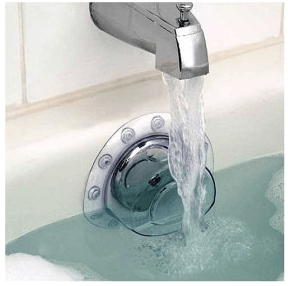Nowadays there are so many different types and models of water heaters in the market. Therefore, choosing a good water heater for your situation and requirements can be quite taxing and tedious, especially if you do not have the necessary know-how about the features and functionality of each type. Basically, water heaters are classified according to their make and energy source. The most common types include conventional storage, tankless or demand-type, heat pump, solar, and tankless coil and indirect water heaters. Depending on your hot water needs, you can reap various benefits and suffer various limitations from each of these models. In this instance, you will learn about the pros and cons of using heat pump water heaters. However, it is important to understand the working mechanism of this type of water heater.
Working Mechanism
Heat pump water heaters use electricity to suck heat from their surroundings and dump it into a water tank. Essentially, they work like refrigerators in reverse — without directly generating any heat. Typically, heat pumps are used to provide heat and cool homes. As such, you can either buy a stand-alone water heating system or use a combination water heating and home AC system. You can get a stand-alone heat pump water heating system featuring a built-in water storage tank and back-up resistance heating elements or you can retrofit a heat pump to work with an existing conventional storage water heater. Consult any local professional plumber offering relevant services, such as DC bathroom remodeling and water heater installation and repair services on advice regarding your home pump. Remember that heat pump water heaters work more efficiently in warm climates.
Benefits
Heat pump water heaters have some of the lowest operating costs because they are very energy efficient. Actually, they can be 2-3 times more energy efficient than conventional electric resistance water heaters; and are hence some of the cheapest-to-operate electric water heaters in the market today. Secondly, heat pump water heaters are capable of satisfying huge hot water needs at no extra cost, especially if installed in warm climates. Hybrid systems are usually preferred because they ensure convenient functionality during cold seasons and significant energy bill savings during summer.
Limitations
Heat pump water heaters have many limitations due to their unique operating mechanism and special operating conditions. For starters, they usually cost more to buy and install than conventional electric heaters. Secondly, they require special climatic conditions to operate efficiently — warm climates. Thirdly, they are usually taller and wider than conventional electric heaters and require more air space around them to function properly. As such, heat pump water heaters take up more space than other electric heaters. Fourthly, heat pump water heaters increase the load on AC appliances during the cold season. This is because they have to share the limited indoor space heat with other space conditioning appliances. They also require special maintenance, which can be tedious and expensive if not done carefully and regularly. For instance, their air filters requires regular cleaning to ensure operating efficiency. Finally, some heat pump water heaters feature side pipes to protect the heater from damage from leaking pipes. To install such models, you need to reconfigure the pipes.
http://plumberindc.com/benefits-and-limitations-of-using-heat-pump-water-heaters/
No comments:
Post a Comment